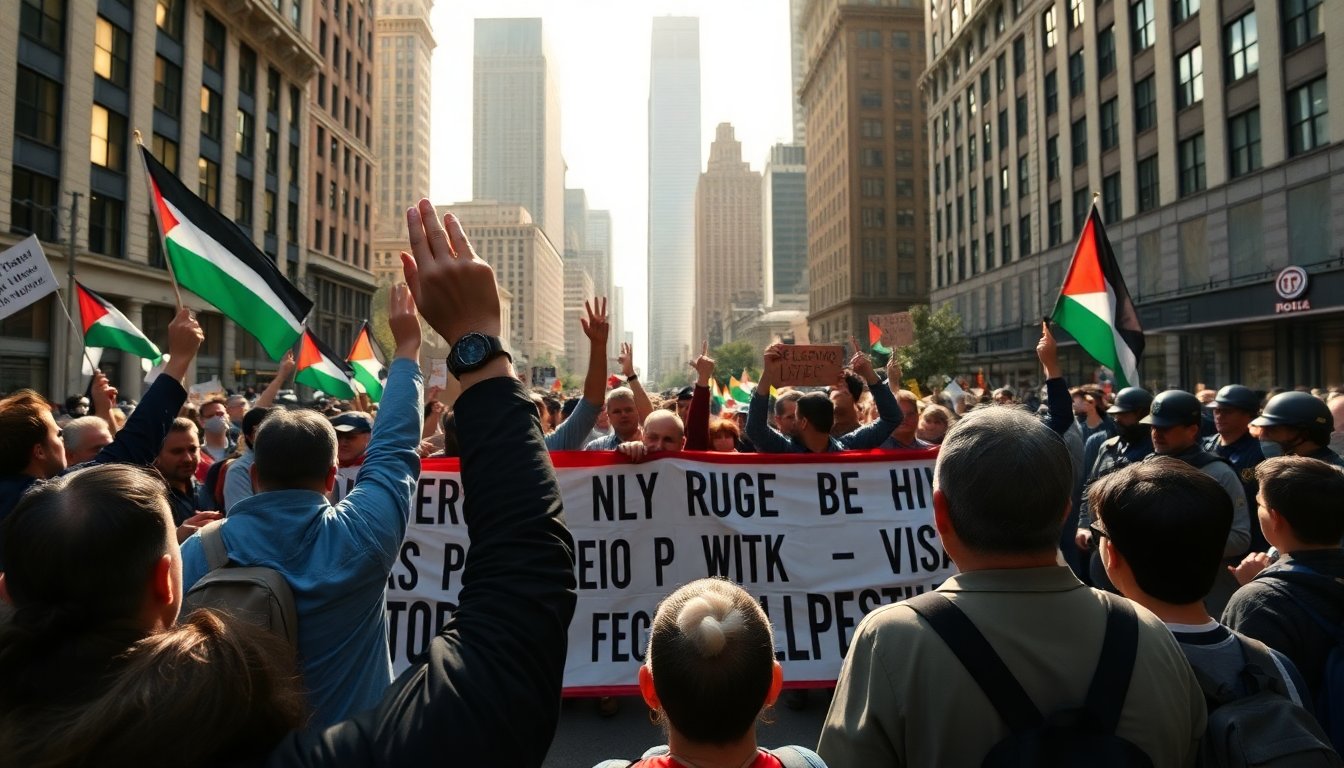Table of Contents
In a significant diplomatic development, the U.S. State Department has revoked the visa of Gustavo Petro, the President of Colombia. This action follows remarks made by Petro during a pro-Palestinian rally in New York City, raising critical questions about the responsibilities of political leaders and their impact on international relations.
Petro’s comments at the rally included a call for U.S. military personnel to defy orders, which the State Department viewed as a direct incitement to insubordination. This incident has sparked debates concerning the limits of free speech for foreign leaders and its potential repercussions on diplomatic relations.
Background on the visa revocation
The visa revocation occurs within a broader context where the U.S. government is closely monitoring the actions and statements of foreign leaders, particularly those that may challenge the integrity of its military. The State Department’s decision reflects a strict policy against any rhetoric that undermines the military chain of command.
In his speech, Petro expressed strong support for Palestinian rights, a sentiment that resonates with many in Latin America. However, his urging of American soldiers to disregard orders led to increased scrutiny of his visa. The historically strong relationship between the U.S. and Colombia now faces significant challenges due to Petro’s provocative remarks.
Reactions from the Colombian government
The Colombian government has voiced its disapproval of the U.S. decision, emphasizing the need for dialogue and mutual respect in international relations. Officials have warned that such actions could negatively affect cooperation between the two nations, especially in trade and security.
Supporters of Petro contend that his comments were misinterpreted and intended to shed light on the Palestinian plight rather than incite disobedience. This controversy underscores the challenges political leaders face in balancing their advocacy for controversial positions on the global stage.
Implications for U.S.-Colombia relations
The revocation of Petro’s visa is likely to have lasting implications for diplomatic relations between Colombia and the United States. As both nations strive to collaborate on critical issues such as drug trafficking and regional security, the fallout from this incident could disrupt ongoing negotiations.
Additionally, analysts suggest that this situation may influence the approach future Colombian leaders take toward their relationship with the U.S. Concerns over potential repercussions from outspoken remarks could lead to a more cautious diplomatic strategy, potentially hindering open discussions on vital issues.
Future of diplomatic relations
As developments unfold, it remains uncertain how both the U.S. and Colombian governments will address the rising tensions. The international community is closely monitoring the situation, as this incident could establish a precedent for how dissenting voices are treated in the sphere of international diplomacy.
This incident serves as a reminder of the delicate balance between advocating for human rights and maintaining diplomatic relations. As leaders like Gustavo Petro navigate these complex issues, the effects of their statements can extend far beyond their immediate context, influencing international relations for years to come.


